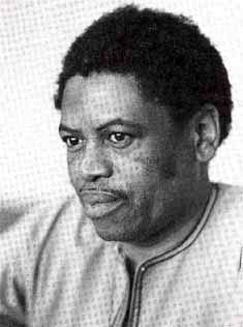Arts and culture
South African literature: the Soweto poets
Black Consciousness
The 1970s are widely regarded as a defining period for the development of political consciousness among black South Africans. With the rise of the Black Consciousness movement, of which the martyred Bantu Steve Biko was a leading figure, and the school children’s revolt of 1976, literature became a vehicle to promote the political ideals of anti-apartheid popular movements. The genres of drama and poetry were utilised for their immediacy of impact. The most notable writers from this period are Mongane (Wally) Serote, Sipho Sepamla, Oswald Joseph Mbuyiseni Mtshali, Christopher van Wyk, Mafika Gwala and Don Mattera. Couched in graphic language designed to arouse the emotions of listeners, their poems were often performed at political rallies. While Mtshali’s poems, first published in 1971 in The Sound of a Cowhide Drum, asked for generalised sympathy for the plight of poor black people, and Sepamla was at first considered a "contemplative" poet, the tone soon changed. By the time of The Soweto I Love (1977), Sepamla’s poetic persona is fully identified with the oppressed. Sepamla also wrote a novel of this turbulent time, A Ride on the Whirlwind (1981). Sepamla, apart from being a leading arts teacher, has written several other novels, and his Selected Poems were published in 1984.Mongane (Wally) Serote
Serote’s early poems, in volumes such as Yakhal’inkomo (1972) and Tsetlo (1974), deal with the life and attitudes of a politically aware black person, looking at his society and its discontentment. In later volumes, Serote begins to develop an epic, incantatory voice, with the long poems of Behold Mama, Flowers (1978) and Come and Hope with Me (1994), winner of the Noma Award for Publishing in Africa. Serote (who became an African National Congress leader) is also the author of the novel To Every Birth Its Blood (1981), a remarkable account of political activity in the 1970s. Serote’s later novel, Gods of our Time (1999), reconstructs civil and military campaigns which led to the demise of apartheid. Other interesting fiction to deal with the Soweto revolt and subsequent political activity include Miriam Tlali’s Amandla (1980) and Mbulelo Mzamane’s The Children of Soweto (1982). Don Mattera has written an account of life in Sophiatown, and its destruction, Memory is the Weapon (1987).The story continued ...
Would you like to use this article in your publication or on your website? See: Using SAinfo material

Poet Sipho Sepamla is also a leading arts teacher, and has written several novels


